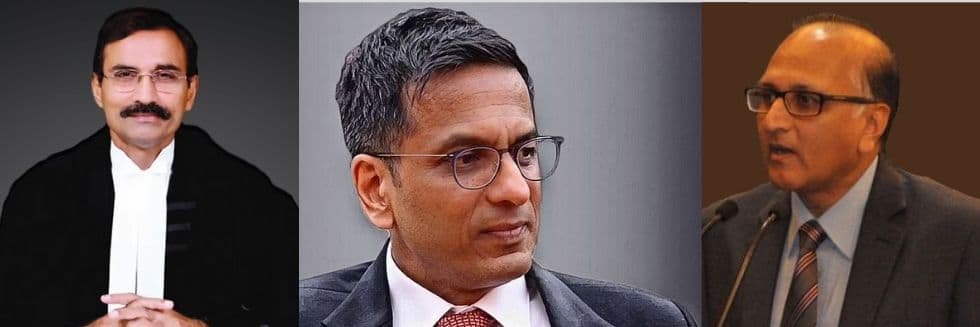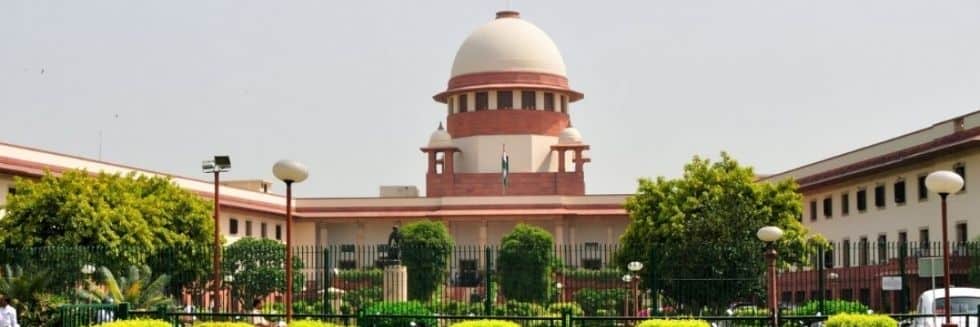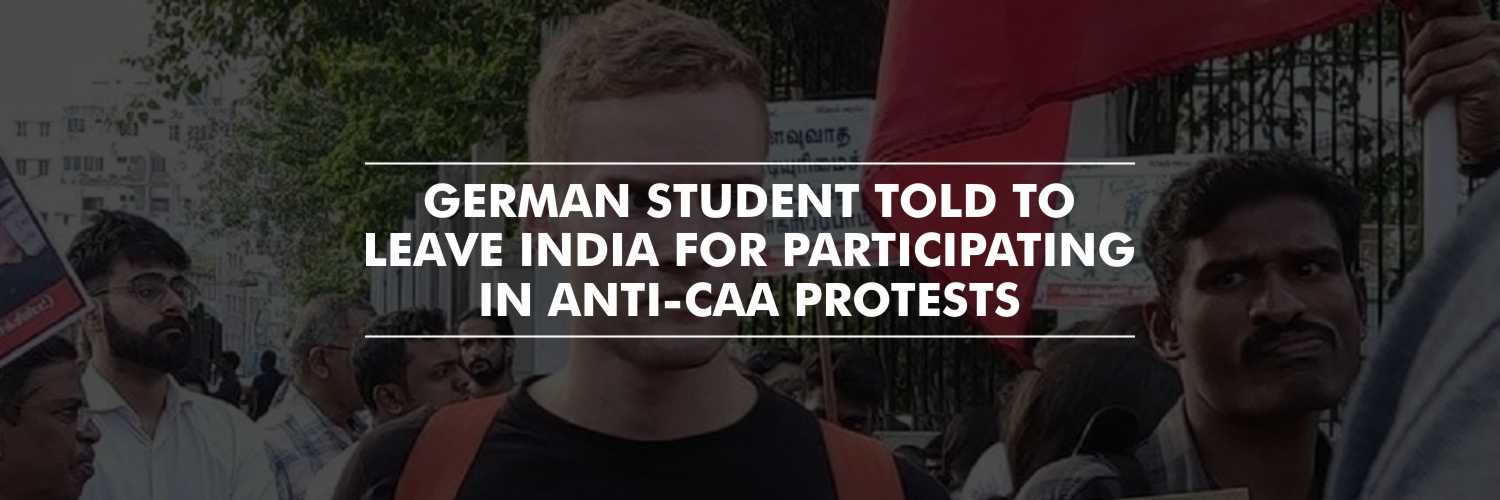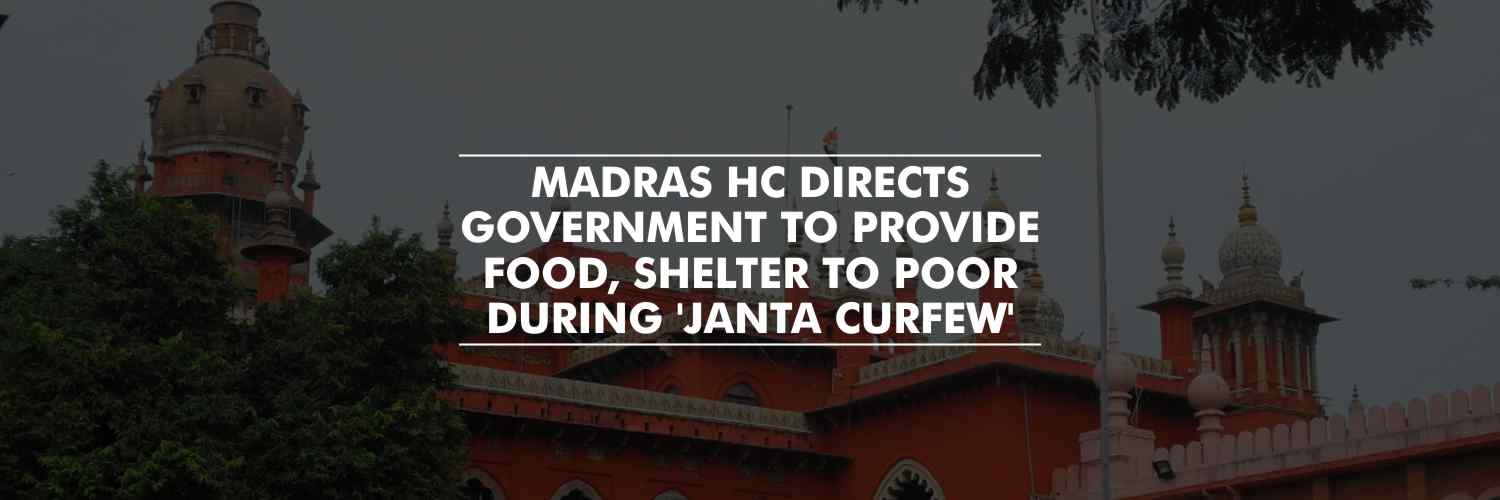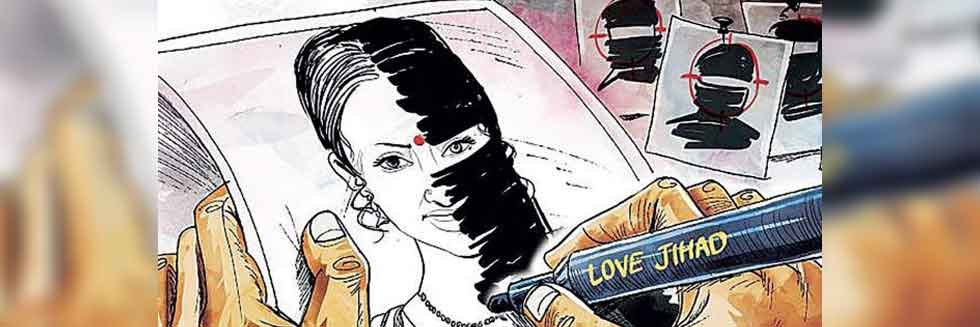Supreme Court on Monday came down heavily on the Centre over the dual pricing of Covid-19 vaccination in different parts of the country. The apex court also questioned the rationale behind letting states and even civic bodies compete with each other for getting vaccines from private manufactures via global tenders.
The three-judge bench comprising Justices DY Chandrachud, L Nageswara Rao, and S Ravindra Bhat was hearing the suo moto case in connection to the Covid-19 management.
“We are not framing policy. There’s an order of 30th April that these are the problems. You will be flexible. You can’t just say that you’re the Centre and you know what’s right. We have a strong arm to come down on this,” said Justice Chandrachud to Solicitor General of India, Tushar Mehta.
Justice Chandrachud further added, “We are not changing the policy. We are asking you to please wake up and smell the coffee and see what’s happening across the country. The only thing we want to address is the dual pricing policy. You are asking the States to pick up and compete with each other.”
SG Tushar Mehta submitted before the bench that it is factually wrong that the States are competing with each other to get vaccine.
“We have some concerns. Now we have a spectacle, where different municipal corporations, different states are issuing global tenders. We want to know, is this the policy of the Government of India that every Municipal corporation, every state is left to their own to get vaccine. Look at the capacity of BMC(Mumbai municipal corporation), it might have a budget comparable with some of our states. Does the Government of India contemplate that for the procurement for foreign vaccines, that there will be individual states or corporations submitting bids or are you going to be a nodal agency for the bids,” Justice Chandrachud said.
Justice Ravindra Bhat asked to show the files of the government policy to understand the exact rationale.
“Till date, we have not seen the policy document which articulates this. We want to see the files. We want to know the rationale. To say that Centre will procure at a lesser price, and manufacturers are free to fix prices at their own whims…. we want to know the rationale. We want to know the rationale why the pricing of 50% vaccines is left to manufactures. We want to see the files,” said Justice Bhat.
He further added that the Centre is available with certain powers under the Drugs and Cosmetics Control Act to control the prices. Justice Bhat sought to know why such powers are not being invoked.
SG Mehta said that the question of states or municipal corporations issuing tenders might be “academic” as companies such as Pfizer, Moderna, etc., have a policy of dealing with only the national governments.
Justice Chandrachud countered SG Mehta’s submission by mentioning that Mumbai Municipal Corporation has received bids for Sputnik. “There is a vital issue. Article 1 of the Constitution says that India, that is Bharat is a, Union of States. When the Constitution says that, then follow the federal rule. Then Government of India has to procure the vaccines and distribute it. Individual States cannot be left in a lurch,” he added.
SG Mehta earnestly urged the bench not to travel this path of examining the vaccine pricing issue as it might hamper the ongoing vaccination program. He further added that the Centre is on track to vaccinate all citizens by December 2021.
To which Justice Bhat replied, “We are only questioning the role of the Centre. We just want the rationale of the dual policy. What is the rationale? If there is enough then we will leave it. We will not hamper you in the negotiation. I don’t know where you got this from.”
Why Different Treatment for Different Age Groups?
The bench also sought to know the rationale behind giving different treatment to the age group 18-44 years. The Centre is giving free vaccines to citizens above the age of 45 years.
“For 45+, 50% of what is available is determined pro rata by the Centre. The rest of the 50% is going to be handed over to private hospitals. Our issue is what is the basis for Centre to say that for 45+, we will provide vaccines free of charge, and for rest, it will be procured at a charge. Two concerns are: You have constantly told us that the situation is dynamic. In the second wave, it was the Pre-45 population which also suffered a great deal. Why should the Centre only procure for 45 and leave the ones below on their own? What is the rationale ? Can we say that 50% of population between 18 to 45 will be able to afford the vaccines? Not at all,” said Justice Chandrachud.
He further added, “How do we look at the marginalised and those who can’t provide for themselves? How do you justify for States such as Goa and Uttarakhand who have to get them all on their own?”
“If this is the rationale, why do the States have to pay a higher price? You have to ensure that vaccines are available at the same price across the nation. You can’t have a different price at the Centre and different at the states,” the judge said.
Justice Chandrachud further asked, “Are you willing to state today that the Centre will take the responsibility of ensuring that States will get the vaccine ? That will resolve the entire problem.”
“You Keep Saying Digital India, But You Are Not Aware of the Ground Realities”: SC Questions COWIN Registration
The top court bench also raised questions about making COWIN registration mandatory to get vaccinated.
“You keep saying digital India, digital India, but you are not aware of the ground realities. A poor worker from Jharkhand has to go all the way to a common Centre? You can certainly have registration, but how will you answer the digital divide ? How do you answer the question about migrant labourers who have to go from one State to another?” asked Justice Chandrachud.
“What about the digital divide? Everyone has to register on COWIN. Is it realistically possible for people in rural areas to start registering on this app? How do you expect them to do that? Our own law clerks and friends have tried. Why are we not treating people with comorbidities and those who are marginalised on the same plane?” Justice Chandrachud raised the concerns.
He further asked, “Even in the villages, they have to get registered at a common Centre. Is that really practical?”
“This is a real fear amongst the people. I have gotten distress calls from people across the country, that they’re not getting slots. They’re all gone within seconds,” added Justice Bhat.
The bench has adjourned the matter by two weeks and has asked the Centre to file an affidavit in connection to all the concerns raised by the SC bench.
